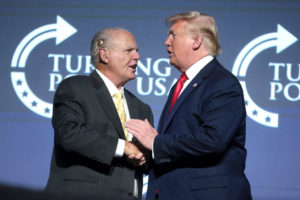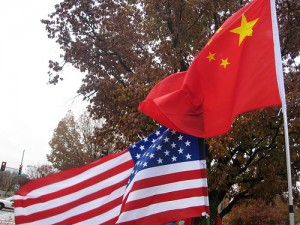
I read two fairly good articles this week. One, in Foreign Affairs, makes out the maximalist Russian case:
Putin also believes that Russia has an absolute right to a sphere of privileged interests in the post-Soviet space. This means its former Soviet neighbors should not join any alliances that are deemed hostile to Moscow, particularly NATO or the European Union. Putin has made this demand clear in the two treaties proposed by the Kremlin on December 17, which require that Ukraine and other post-Soviet countries — as well as Sweden and Finland — commit to permanent neutrality and eschew seeking NATO membership. NATO would also have to retreat to its 1997 military posture, before its first enlargement, by removing all troops and equipment in central and eastern Europe. (This would reduce NATO’s military presence to what it was when the Soviet Union disintegrated.) Russia would also have veto power over the foreign policy choices of its non-NATO neighbors. This would ensure that pro-Russian governments are in power in countries bordering Russia — including, foremost, Ukraine.
This is, of course, the maximalist Russian position, but it is very tiresome to have it presented as “take it or leave it.” What it is, is a negotiating position. In negotiations, one traditionally asks for more than one expects to get. But Washington has responded to this negotiating position by refusing everything. Every single thing.
There are three possible elements to a compromise with Russia, two of which the West has in effect already conceded. The first is either a treaty of neutrality or a moratorium of ten or 20 years on Ukrainian membership of NATO. The West loses nothing by this, as it is clear that Ukraine cannot, in fact, join NATO with its conflicts with Russia unresolved. In any case, the U.S. and NATO have made it absolutely clear that they cannot and will not defend Ukraine by force.
The second element is a return to the (Adapted) Conventional Forces in Europe Agreement limiting NATO forces in eastern Europe and Russian forces in contiguous territories. And the third is internationally-guaranteed autonomy for a demilitarized Donbas within Ukraine, according to the Minsk II agreement of 2015 brokered by Germany and France but since, in effect, rejected by Ukraine.
Failing at least initial moves towards such a compromise, it does indeed look likely that there will be some form of new Russian attack on Ukraine, though by no means necessarily a large-scale invasion.
Putin isn’t insane, and he doesn’t expect to get everything he wants. But he is old, like me, and the three of us –me, Putin, and the Time writer — remember that George Bush Sr. promised NATO wouldn’t expand past a reunited Germany.
So much for Negotiation 101. Let’s move on to the world model. I think this is somewhat accurate (from the Foreign Affairs article).
The modern Kremlin’s interpretation of sovereignty has notable parallels to that of the Soviet Union’s. It holds, to paraphrase George Orwell, that some states are more sovereign than others. Putin has said that only a few great powers — Russia, China, India, and the United States — enjoy absolute sovereignty, free to choose which alliances they join or reject. Smaller countries, such as Ukraine or Georgia, are not fully sovereign and must respect Russia’s strictures, just as Central America and South America, according to Putin, must heed their large, northern neighbor
Now, here’s the thing: I’m Canadian.
So I KNOW that Canada is not a fully sovereign nation. When the US really gets serious about cracking the whip, we buckle, because we have a population one-tenth of that of the US, and a much smaller military and economy, and Americans are savage warmongers who have invaded or hurt the nations around them (and nowhere near them) hundreds of times in the past couple hundred years.
No South American or Central American nation is under any illusion they have full sovereignty. They don’t. The US is clear about it, too, from its actions and words. Hell, the US is currently holding on to 90 billion dollars it stole from Afghanistan as Afghans starve, nowhere near the US. The US is holding Venezuelan assets, and seizes other countries merchant ships on the high seas, then sells the contents if it feels like.
The US is a fully sovereign nation. No nation in Central or South America is. I would say that no one in Europe is, either, given that Europe is still an American protectorate (if barely). The EU could be a fully sovereign nation if it ever chooses to grow up and accept responsibility, but it isn’t now, though it’s more sovereign than anyone other than the US, China, and maybe Russia. (India might be fully sovereign, I suppose, but I don’t consider them a true Great Power yet.)
Is this “how it should be?” I’d say no. I’d prefer a world full of fully-sovereign nations. I don’t like being under the American boot, personally, and I’m not interested in trading that for some other taste of boot leather.
But this is the way the world is, and US foreign policy “professionals” refuse to admit it, while Putin is clear.
All that is being argued about here is whether almost everyone will be under the US boot, or whether or not there will be three boots: China, Russia, and the US — with perhaps the EU putting on some nice German black leather boots itself, if it ever decides to take responsibility for itself again, and the rest of the EU decides that they’re okay with even more German rule, eased a bit by the French.
The Foreign Affairs author understands this:
Weakening the transatlantic alliance could pave the way for Putin to realize his ultimate aim: Jettisoning the post–Cold War, liberal, rules-based international order promoted by Europe, Japan, and the United States in favor of one more amenable to Russia. For Moscow, this new system might resemble the nineteenth-century concert of powers. It could also turn into a new incarnation of the Yalta system, where Russia, the United States, and now China divide the world into tripolar spheres of influence. Moscow’s growing rapprochement with Beijing has, indeed, reinforced Russia’s call for a post-West order. Both Russia and China demand a new system in which they exercise more influence in a multipolar world.
The nineteenth- and twentieth-century systems both recognized certain rules of the game. After all, during the Cold War, the United States and the Soviet Union mostly respected each other’s spheres of influence. The two most dangerous crises of that era — Soviet Premier Nikita Khrushchev’s 1958 Berlin ultimatum and the 1962 Cuban missile crisis — were defused before military conflict broke out. But if the present is any indication, it looks as if Putin’s post-West “order” would be a disordered Hobbesian world with few rules of the game.
But every time I see “rules-based international order,” I reach for my gun, because I know what that means is the US seizing ships and invading countries and slamming everyone in sight with financial sanctions while fomenting fake revolutions and engaging in coups. Oh, other countries have been bad actors too, but really the “rules-based international order” means “there’s only one superpower.”
So yes, Putin, and for that matter Xi, want a multipolar great-power world. So does Iran, Venezuela, Iraq, Libya, and most African countries. (Though I suppose Putin might acknowledge the US right to crush Venezuela given his own rights are respected.)
BUT, this is the maximal position. The US “rules-based international order” is doomed. That’s simply a fact; the US is no longer powerful enough to support it. You can’t have that after you’ve given up your position as the primary manufacturing state to another country. It’s impossible. Britain didn’t keep it, and neither will the US — the only question is how many hundreds of millions of people will die creating the international order.
If the US wanted a fair world order, truly, then it would have to actually acknowledge and genuinely respect the autonomy of other states. But Libya, Iraq, Afghanistan, Venezeula, Iran, and, yes, Russia, among many others indicate it doesn’t. If it did, the US would have vast numbers of allies.
But that order wouldn’t be the “rules-based international order” of today. You wouldn’t be able to unilaterally cut nations out of the payment systems and invade other countries with the acquiescence of only a few core European allies.
So what’s being argued over isn’t about a choice between a “good system” versus a “bad system,” despite the author’s mutterings about Hobbesianism, but a choice between two bad systems.
And in that case, it’s just a question of the power of those who want to keep the status quo and those who want the new state. And in that case, it’s not clear that the US can keep its precious privilege to hurt everyone else because it’s the only real great power. If you want to the only hegemonic state, you have to have the power and enough lackeys who are willing to fight with you.
If the US does, and is willing to fight, then maybe it can keep its order.
But I doubt it, again for the simple reason that US primacy was based on economic primacy, and the US doesn’t have that any more. (Their military primacy, since the Industrial Revolution, has been based on industrial primacy.)
Given that US elites decided to give China their industrial core in exchange for a few pieces of silver (so they could kick the shit out of the poor and the middle class internally), they’ve already made their choice. They got their money and their internal supremacy. The price is going to be their international primacy.
That was always the price. US international primacy was based on power and benefit-sharing at home. When US elites decided that they’d rather be oligarchs, they decided they’d also rather not rule the world.
Putin and Xi are just pointing out the consequences of decisions already made.

 Stirling Newberry explained the concept of a death bet: you bet that the negative consequences of your actions will occur after you are dead. Classically this explains climate change: decision makers who could have stopped it will almost all be dead before it becomes significant.
Stirling Newberry explained the concept of a death bet: you bet that the negative consequences of your actions will occur after you are dead. Classically this explains climate change: decision makers who could have stopped it will almost all be dead before it becomes significant.